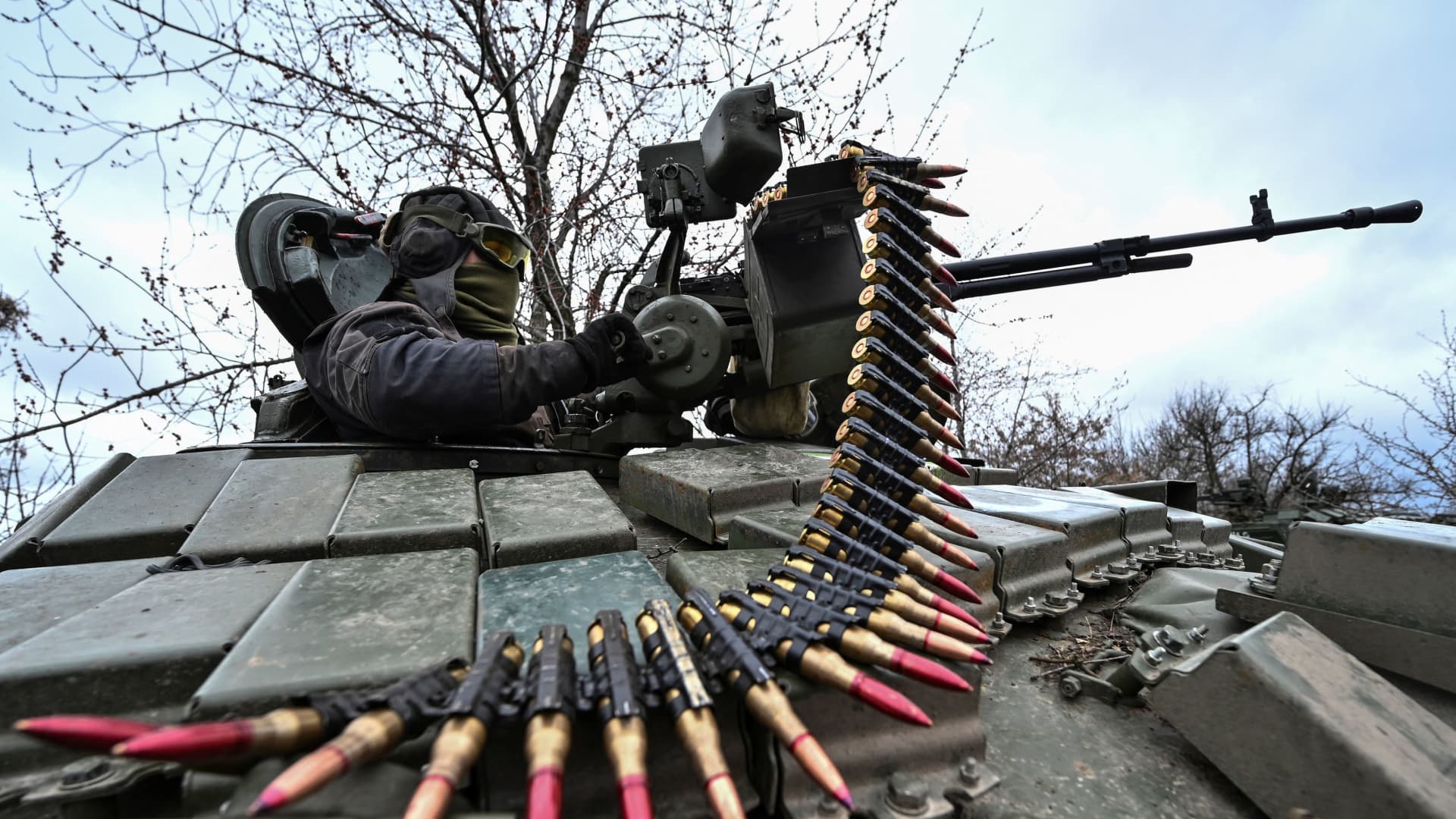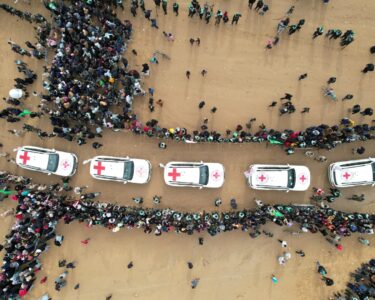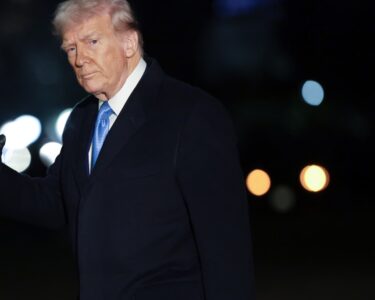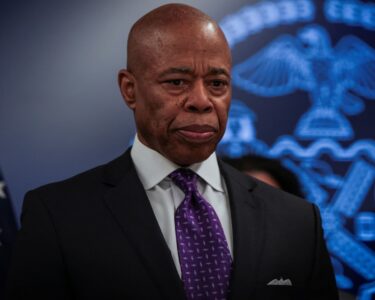This was CNBC’s live blog tracking developments on the war in Ukraine on March 30, 2023. See here for the latest updates.
Russia continues to flex its military muscles, with its Defense Ministry announcing Wednesday that it has launched military exercises involving its giant Yars intercontinental ballistic missile system.
It said on its website that 3,000 military personnel would be involved in the exercise taking place across three regions in Russia.
Russia has often proudly showcased its Yars intercontinental ballistic missiles — which are designed to evade missile defense systems, reputedly up to a range of 7,500 miles — during the annual Victory Day military parade in Moscow.
The move comes just days after Russian president Vladimir Putin announced that Russia would deploy tactical nuclear weapons to Belarus, a move that has been criticized by the West.
Rebuilding Ukraine is the most ambitious project of the 21st century, that country’s prime minister was quoted as saying by Ukraine’s government portal.
Since invading Ukraine in February 2022, Russian troops have largely destroyed several Ukrainian cities. Moscow has also intentionally targeted Ukraine’s energy grids and other civilian infrastructure.
Rebuilding will require “huge resources,” Denys Shmyhal said in an online address at a conference. He spoke to more than 200 industry representatives from the EU and Ukraine. The Ukraine government portal did not quantify what rebuilding would cost.
Business will be the “engine of change” to rebuild Ukraine’s economy, said Shmyal. Ukraine’s most promising sectors are energy, defense, agriculture, natural resources and IT, he said.
The U.S. International Development Finance Corporation has announced its readiness to mobilize more than $1 billion in private capital to support Ukraine’s economy, he added.
— Audrey Wan
Ukrainian President Volodymyr Zelenskyy said Russia has “been at war” with democracy for years.
“It fights via disinformation, election interference, espionage, corruption exporting, cybercrime, by trying to trigger an energy crisis and price explosions in markets that will hit your people with insane electricity or gas bills,” he said at a democracy summit hosted by U.S. President Joe Biden, according to his office.
Biden and other Western leaders have provided Ukraine with weapons and financial aid, and have slapped rounds of sanctions on Russia, since Moscow invaded its neighbor about 13 months ago. Zelenskyy said “evil must lose the war” because then “it will know that it will always lose everywhere.”
The Ukrainian president said the globe should not “think how to save Putin’s face” in trying to end the war. He also called on his allies to provide “all the weapons that will reliably guarantee” Russia’s defeat.
— Jacob Pramuk
The Biden administration is offering support for the creation of an international court to prosecute alleged crimes of aggression by Russia against Ukraine.
In comments this week, senior U.S. officials said the administration believes that would be the best way to hold Russia accountable for its year-old invasion. However, they also acknowledge that the prospects for a court to actually take custody of any Russian official for trial are slim.
“The United States supports the development of a special tribunal on the crime of aggression against Ukraine in the form of an internationalized court that is rooted in Ukraine’s judicial system, with international elements,” the State Department said in comments emailed to reporters.
The officials said they envision a hybrid tribunal based on the Ukrainian justice system but with international components — similar to previous ad hoc war crimes courts set up for Cambodia, Chad, the Central African Republic and Bosnia — and likely based in The Hague, Netherlands.
— Associated Press
Hungary is holding up Sweden’s admission to NATO because of grievances over criticism by Stockholm of Prime Minister Viktor Orban’s policies, the Hungarian government spokesman said.
Bridging the gap will require effort on both sides, spokesman Zoltan Kovacs said.
Sweden and its neighbour Finland asked to join the NATO military alliance last year following Russia’s invasion of Ukraine. But the process has been held up by Hungary and Turkey.
After months of foot-dragging by Orban’s ruling Fidesz party, Hungary’s parliament approved a bill on Monday to allow Finland to join NATO but the Swedish bill is still stranded.
“In the case of Sweden, there is an ample amount of grievances that need to be addressed before the country’s admission is ratified,” Kovacs said on his blog.
— Reuters
International Atomic Energy Agency Director General Rafael Grossi is seen on his way to Zaporizhzhia Nuclear Power Plant, a Russian-held facility that has raised security concerns amid fighting in the area.
— Getty Images & Reuters
Sweden’s foreign ministry said on Wednesday it will summon Russia’s Stockholm ambassador to complain about an “attempt at interference” with the Swedish NATO application process.
Sweden and Finland in 2022 both sought NATO membership shortly after Russia’s invasion of Ukraine, and are hoping to complete the process this year.
The Russian ambassador in a statement on the embassy’s web site said joining NATO made the Nordic countries “a legitimate target for Russian retaliatory measures, including those of a military nature.”
A Swedish foreign ministry spokesperson told Reuters the ambassador would be summoned.
“The foreign ministry is summoning the Russian ambassador to protest this obvious attempt at interference,” Swedish Foreign Minister Tobias Billstrom separately told news agency TT.
— Reuters
Ukrainian President Volodymyr Zelenskyy warned that unless his nation wins a drawn-out battle in a key eastern city, Russia could begin building international support for a deal that could require Ukraine to make unacceptable compromises. He also invited the leader of China, long aligned with Russia, to visit.
If Bakhmut fell to Russian forces, their president, Vladimir Putin, would “sell this victory to the West, to his society, to China, to Iran,” Zelenskyy said in an exclusive interview with The Associated Press.
“If he will feel some blood — smell that we are weak — he will push, push, push,” Zelenskyy said in English, which he used for virtually all of the interview.
The leader spoke to the AP aboard a train shuttling him across Ukraine, to cities near some of the fiercest fighting and others where his country’s forces have successfully repelled Russia’s invasion. The AP is the first news organization to travel extensively with Zelenskyy since the war began just over a year ago.
Read the full interview.
— Associated Press
Russia’s Deputy Foreign Minister Sergei Ryabkov said Moscow will no longer notify the U.S. about its nuclear activities, a month after Moscow suspended its participation in the New START arms control treaty.
“All forms of notifications, all data exchange, all inspection activities, in general, all types of work under the agreement are suspended, they will not be carried out,” Ryabkov said Wednesday, according to the Interfax news agency.
Russian President Vladimir Putin announced in February that Russia was going to suspend its participation in the New START Treaty, a pact that established a limit on the number of strategic warheads that the U.S. and Russia are able to deploy.
— Holly Ellyatt
The head of the Wagner Group — a private military company whose mercenaries have been involved in heavy, intense fighting to try to capture Bakhmut in eastern Ukraine — said Wednesday that the battle for the town has taken a large toll on both sides.
“At the moment, the battle for Bakhmut has almost destroyed the Ukrainian army, and unfortunately rather battered PMC Wagner,” Yevgeny Prigozhin said on his business’ Telegram channel.
He said that if his Wagner units “win” in Bakhmut, against Ukraine’s armed forces and what he described as “foreign units” without elaborating further, Prigozhin said it would represent “the greatest turn in this war and in all modern history.”
“PMC Wagner destroys foreign forces that are trying to bring Russia to its knees. And after that, only the Russian army will remain on the chessboard, and all other pieces will be removed,” he said.
Prigozhin’s Wagner Group has been fighting to try to capture Bakhmut for over seven months, meeting stiff resistance from Ukraine’s fighters trying to hold on to the city. Capturing Bakhmut is seen as a stepping stone for Russians trying to extend their hold on Donetsk in eastern Ukraine.
— Holly Ellyatt
The Kremlin said on Wednesday that Russia’s confrontation with hostile states and what it called a “hybrid war” being waged against it by the West would last a long time.
Kremlin spokesman Dmitry Peskov made the prediction when asked how long what Russia calls it “special military operation” in Ukraine would last.
“If you are referring to a war in a broader context, a confrontation with hostile states, a hybrid war against our country, then it is going to last for a long time,” Peskov told reporters.
“And here we need to be resolute and self-confident and to consolidate around the president,” he said.
— Reuters
The head of the International Atomic Energy Agency, Rafael Grossi, arrived in Enerhodar in southern Ukraine for a visit to the beleaguered Zaporozhzhia Nuclear Power Plant, according to Russian news agency RIA Novosti.
The nuclear power plant has been occupied by Russian troops since early on in the war and has been a constant source of tensions between Russian and Ukrainian forces, with each accusing the other of shelling near the site and jeopardizing the safety and stability of the plant, Europe’s largest of its kind.
The IAEA, the U.N.’s nuclear watchdog, stationed its own inspectors at the facility late last year in a bid to oversee safety standards at the site. It has repeatedly warned of a potential nuclear catastrophe if a safe zone is not established around the plant.
Grossi is on a working visit to the site, his second visit to the facility, and is there to “personally assess the serious situation with nuclear safety at the facility and emphasize the urgent need to protect it during the ongoing military conflict in the country,” an IAEA spokesperson told the news agency.
— Holly Ellyatt
Ukrainian Deputy Prime Minister Iryna Vereshchuk urged Russians on Tuesday not to adopt children who she said were “stolen” in Ukraine during the war and deported to Russia.
The war that Russia has been waging on its neighbour for 13 months now has seen millions of people displaced, including families and children. The real number of children who have been forcefully deported to Russia is impossible to establish.
The International Criminal Court (ICC) issued an arrest warrant earlier in March against Russian President Vladimir Putin and Maria Lvova-Belova, Russia’s commissioner for children’s rights, accusing them of the war crime of illegally deporting hundreds of children from Ukraine.
Vereshchuk said on the Telegram messaging app that orphans have been “stolen in Ukraine” and allegedly given up for adoption in Russia.
“I strongly recommend that Russian citizens do not adopt Ukrainian orphans who were illegally taken out of the temporarily occupied territories of Ukraine,” Vereshchuk, in charge of social issues, said.
“Once again I remind all Russian so-called ‘adoptive parents’ and ‘guardians’: sooner or later you will have to answer.”
According to Ukraine’s Ministry of Integration of Occupied Territories, 19,514 Ukrainian children are currently considered illegally deported.
Russia has not concealed a programme under which it has brought thousands of Ukrainian children to Russia, but presents it as a humanitarian campaign to protect orphans and children abandoned in the conflict zone.
Russia’s defence ministry said in mid-August that 3.5 million people had been brought to Russia by then, including more than half a million children. The United States said in July that Russia “forcibly deported” 260,000 children, from their homes to Russia.
— Reuters
Ukraine’s military insisted Russian forces are not making progress in Bakhmut, the besieged town in Donetsk in eastern Ukraine, despite claims to the contrary in Russia.
“The enemy continues to try to storm the city of Bakhmut. However, our defenders are bravely holding the city, fighting the numerous attacks of the enemy.” the General Staff of the Ukrainian Armed Forces said in an update on Facebook.
The military added that its forces had repelled 57 Russian attacks on Bakhmut and surrounding towns, including Avdiivka, a town largely destroyed and labelled as a potential “second Bakhmut.”
The comments come a day after pro-Moscow official said Russian forces were advancing in Bakhmut and had almost taken complete control of the AZOM metals plant in the north of the city. CNBC was not able to immediately verify the reports.
Ukraine’s President Volodymyr Zelenskyy told news outlet AP on Tuesday that it was important for Ukraine to keep hold of Bakhmut, despite military analysts downplaying its strategic significance.
Zelenskyy noted that if Bakhmut fell to Russian forces, Russian President Vladimir Putin would “sell this victory to the West, to his society, to China, to Iran.”
“If he will feel some blood — smell that we are weak — he will push, push, push,” Zelenskyy said.
— Holly Ellyatt
Defense officials in the U.K. have disputed Russian claims to have taken control of a metals plant in Bakhmut in eastern Ukraine.
A Russian-installed official in Donetsk, where Bakhmut is located, claimed on Wednesday that fighters from the Russian private military company, the Wagner Group, had taken full control of the Azom factory complex to the north of the Bakhmut town center.
But the British Defense Ministry said Wednesday that “the area likely remains contested, as it has been for the past fortnight” and that the Wagner Group, made up of mercenary fighters and Russian prisoners recruited to fight for six months in exchange for freedom, was losing personnel.
“With Wagner having now confirmed the release of at least 5000 prisoner fighters, personnel shortages are likely hampering Russian offensive efforts in the sector,” the ministry noted in an intelligence update.
The ministry noted that fighting continues in the Donbas town of Bakhmut, though Russian assaults are still at a reduced level compared with recent weeks.
“One of the key achievements of recent Ukrainian operations has likely been to push Russian Wagner Group fighters back from the 0506 route,” referring to one of the few remaining supply routes into the city.
“This minor country road has become a critical supply line for Ukrainian defenders. Wagner had previously been within a few hundred metres of the route,” the ministry said.
— Holly Ellyatt
Ukrainian President Volodymyr Zelenskyy said Kyiv still hasn’t heard anything more about a purported call with Chinese President Xi Jinping.
After Xi’s high-profile visit to Russia last week, it was reported that the influential leader — who is largely aligned with Russia and President Vladimir Putin on an ideological and strategic level — would also hold a telephone call with Ukraine’s president, given that China has sought to position itself as a peace broker to end the war.
So far, however, nothing has been arranged, Zelenskyy said.
“We are ready to see him here,” he told the Associated Press news agency Tuesday while en route to Kyiv after a visit to the Sumy region.
“I want to speak with him. I had contact with him before full-scale war. But during all this year, more than one year, I didn’t have.”
When asked if there was any plan at the moment to meet with Xi, Zelenskyy replied “no.”
— Holly Ellyatt
Russia has launched military exercises involving its Yars intercontinental ballistic missile system on Wednesday, the defense ministry said.
“In total, more than 3,000 military personnel and about 300 pieces of equipment are involved in the exercise,” the ministry said in a statement on its website.
The drills involve the Strategic Missile Forces who, the ministry said, “are conducting a comprehensive control check of the Omsk missile formation, as well as “a command and staff exercise with the Novosibirsk missile formation” that’s equipped with the Yars mobile ground-based missile systems.
Russia has often proudly showcased its Yars intercontinental ballistic missile launchers through Moscow during the annual Victory Day military parade.
The ballistic missile can reportedly carry multiple independently targetable nuclear warheads, and is designed to evade missile defense systems up to a range of 7,500 miles, defense experts note.
During the exercises, the missile launchers will be involved in maneuvers in three regions, the ministry said, although it did not specify where.
The defense ministry added that the exercise with the Novosibirsk missile formation will determine “the overall level of combat training of the division, but also assess the capabilities of modern weapons and special equipment entering the formations.”
— Holly Ellyatt
European Union countries agreed to seek a legal option to stop Russian companies sending liquefied natural gas to EU nations, by preventing Russian firms from booking infrastructure capacity.
EU countries’ energy ministers proposed that new EU gas market rules should include the option for governments to temporarily stop Russian and Belarusian gas exporters from bidding up-front for capacity on the infrastructure needed to deliver LNG into Europe.
The proposal is part of countries’ negotiating position on new EU gas market rules. It must be negotiated with the European Parliament – a process that can take months.
The 27-country EU has pledged to ditch Russian gas in response to Moscow’s invasion of Ukraine. Europe’s pipeline imports of gas from Russia have plunged since the invasion, but LNG imports have increased.
— Reuters
The United States has not seen any indications that Vladimir Putin is getting closer to using tactical nuclear weapons in his war on Ukraine, just days after the Russian leader said he was moving such weapons into Belarus.
“We’re watching this as best we can. We haven’t seen any movement by Mr. Putin to act on what he pledged he would do,” White House spokesperson John Kirby told reporters about Putin’s statement on Belarus.
“And we haven’t seen any indications that Mr. Putin is leaning towards or getting closer to or indicating any preparations for the use of tactical nuclear weapons in Ukraine.”
— Reuters
A Russian who was investigated by police after his daughter drew an anti-war picture at school was sentenced to two years in a penal colony on charges of discrediting the armed forces.
But the whereabouts of the convicted man, Alexei Moskalyov, were unclear. The court said in an official posting on VKontakte, similar to Facebook, that he had fled from house arrest.
Moskalyov has been separated from his 13-year-old daughter Masha since he was placed under house arrest at the start of this month and she was moved to a children’s home in their hometown of Yefremov, south of Moscow.
The case has provoked an outcry among Russian human rights activists and sparked an online campaign to reunite father and daughter.
— Reuters
Ukraine’s President Volodymyr Zelenskyy visits positions of Ukrainian border guards near the border with Russia in the Sumy region.
— Ukrainian Presidential Press Service | Reuters
Belarus’ Foreign Ministry said Tuesday that it had decided to host Russia’s tactical nuclear weapons reportedly because of NATO’s “coercive measures” and “the build-up of military potential” in neighboring countries.
“Unilateral coercive measures in politics and the economy are accompanied by the build-up of military potential in the territory of neighboring countries — NATO members in close proximity to our border,” Belarus’ Foreign Ministry said in a statement, reported by Russian news agency Tass.
“Considering these circumstances and the legitimate concerns and risks in the field of national security arising from them, Belarus is taking forced response actions to strengthen its own security and defense capability,” the ministry said.
Russia’s ally Belarus is seen as something of a bulwark for Moscow against NATO, given that it borders Poland, Lithuania and Latvia — all NATO members — and Ukraine to the south, and Russia to the east.
Over the weekend, Russia announced that it would locate tactical nuclear weapons (designed for use on the battlefield rather than mass wholescale destruction) within Belarus, saying President Alexander Lukashenko had made the suggestion to do so.
Minsk and Moscow both insisted the plans would not contravene international non-proliferation agreements, saying the U.S. already did the same thing with its allies and that Belarus would not have control over the weapons.
NATO criticized Russia’s nuclear rhetoric, calling it “dangerous and irresponsible.”
— Holly Ellyatt
German and British tanks arrive in Ukraine; Russia fires supersonic missiles off Japan’s coast






